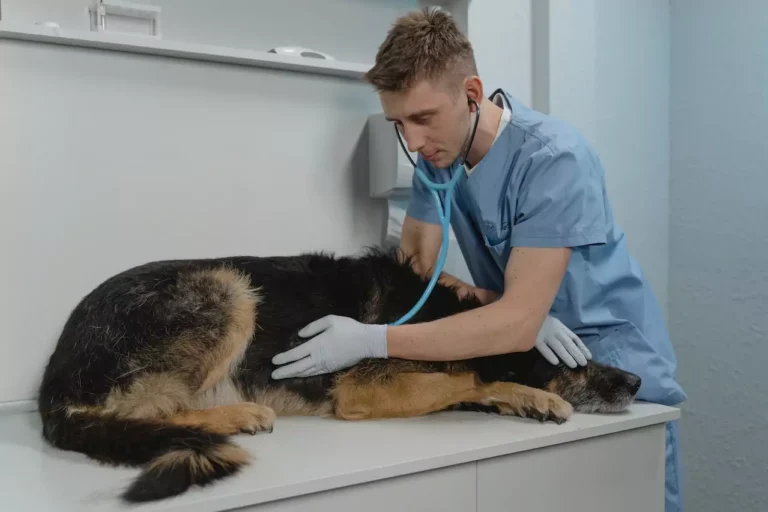Dogs are wonderful companions and part of our families. We love and take care of them, so it’s concerning when we notice something unusual happening to their bodies.
One common problem dog owners may encounter is when their female dog starts leaking clear fluid from her anus. It’s important to understand why this happens and how to deal with it.
In this article, we will explore ten possible reasons for this condition and provide tips on how to stop it.
What is the Clear Fluid Leaking from the Anus?

The clear fluid you may see leaking from your female dog’s anus is called anal gland fluid. Dogs have anal glands, also known as scent glands, on both sides of their anus. These glands produce a smelly substance that dogs use to mark their territory and communicate with other dogs.
Normally, the anal glands release a small amount of fluid when a dog poops, helping the stool pass smoothly.
10 Reasons Why Your Female Dog is Leaking Clear Fluid
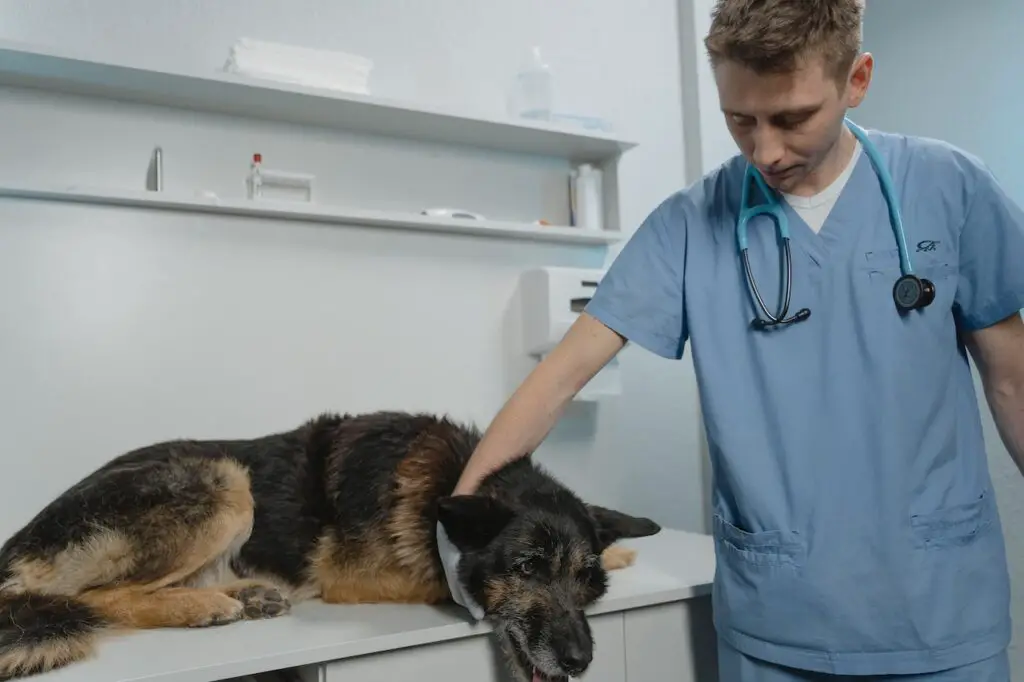
1. Full Anal Glands
If a female dog’s anal glands are full, she may leak clear fluid from her anus. Impacted or infected glands can cause discomfort and lead to leakage. It’s important to consult a veterinarian who can express the anal glands and provide the right treatment.
2. Glandular Dysfunction
Sometimes, a dog’s anal glands may not work properly, resulting in either too much fluid or inadequate emptying. This can lead to leakage. Your vet can evaluate the situation and recommend the appropriate course of action.
3. Diarrhea
Diarrhea can contribute to anal gland fluid leakage. The frequent and loose stool can put pressure on the glands and make them release more fluid than usual. Treating the underlying cause of the diarrhea can help resolve the issue.
4. Allergies
Food or environmental allergies can cause inflammation and irritation in a dog’s anal area. This irritation can trigger the anal glands to produce more fluid, leading to leakage. Identifying and managing the allergen can reduce the symptoms.
5. Infections
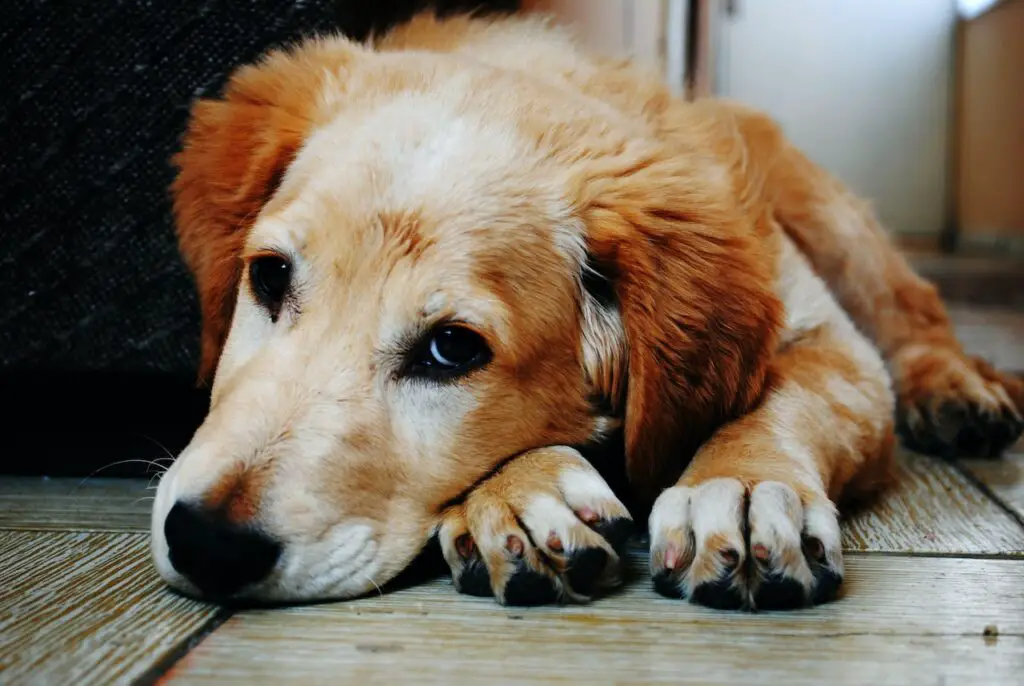
Bacterial or yeast infections in the anal area can cause fluid leakage. These infections may be uncomfortable and require medication prescribed by a veterinarian for effective treatment.
6. Parasites
Certain parasites, like worms, can affect a dog’s digestive system and lead to anal gland issues. Regular deworming and preventive measures recommended by your vet can help prevent problems related to parasites.
7. Inflammation or Tumors
Inflammation or tumors near the anal glands can disrupt their normal functioning, resulting in fluid leakage. A thorough examination by a veterinarian is necessary to determine the underlying cause and develop an appropriate treatment plan.
8. Physical Trauma
Trauma to the anal area, such as an injury or accident, can damage the anal glands and cause fluid leakage. Prompt veterinary attention is essential to assess the injury’s extent and provide proper care.
9. Hormonal Changes
Hormonal imbalances, especially related to reproductive cycles, can affect a female dog’s anal glands. These changes can cause variations in fluid production and result in leakage. Spaying or hormonal treatments, if recommended by a vet, may help regulate hormone levels and reduce the issue.
10. Anal Sacculitis
Anal sacculitis is inflammation of the anal sacs, which can lead to fluid buildup and leakage. It often requires veterinary intervention, including antibiotics or anti-inflammatory medications, to alleviate the condition.
How to Stop the Clear Fluid Leakage
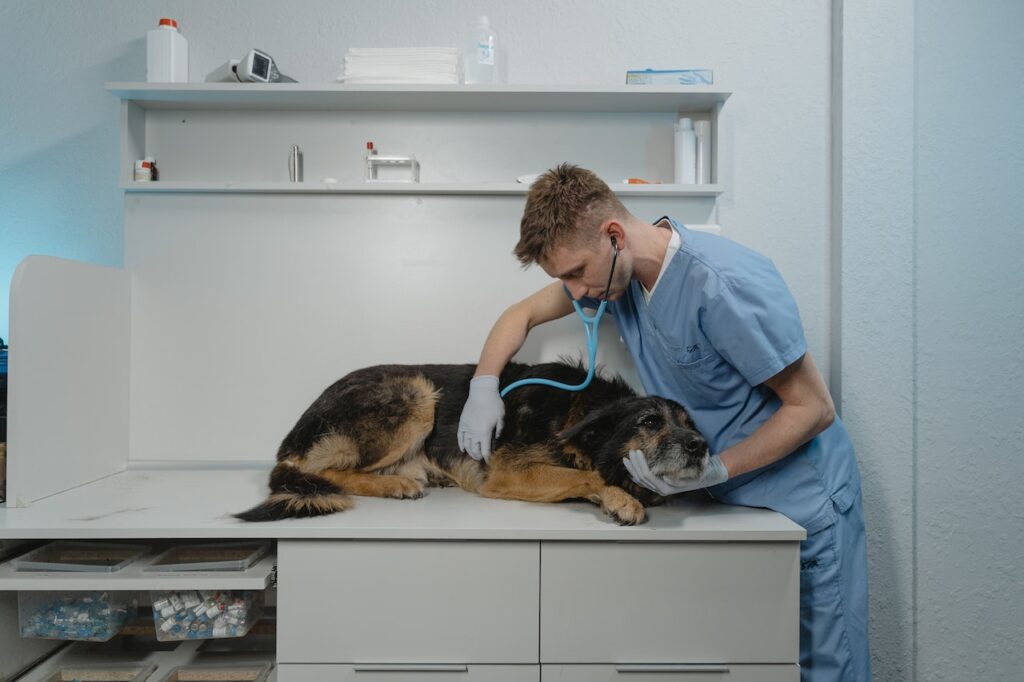
Now that we’ve explored the possible reasons for clear fluid leakage from a female dog’s anus, let’s discuss some general tips to address this issue:
1. Consult a Veterinarian
If you notice clear fluid leakage in your female dog, it’s crucial to consult a veterinarian for a proper diagnosis and tailored treatment plan.
2. Express the Anal Glands
Your vet can manually express the anal glands, gently squeezing them to release the built-up fluid. This procedure should only be performed by a trained professional.
3. Medications
Depending on the underlying cause, your veterinarian may prescribe medications like antibiotics, anti-inflammatories, or hormone-regulating drugs to effectively address the issue.
4. Dietary Adjustments
In some cases, dietary changes such as switching to a hypoallergenic or specialized diet can help manage allergies and reduce anal gland-related problems.
5. Preventive Measures
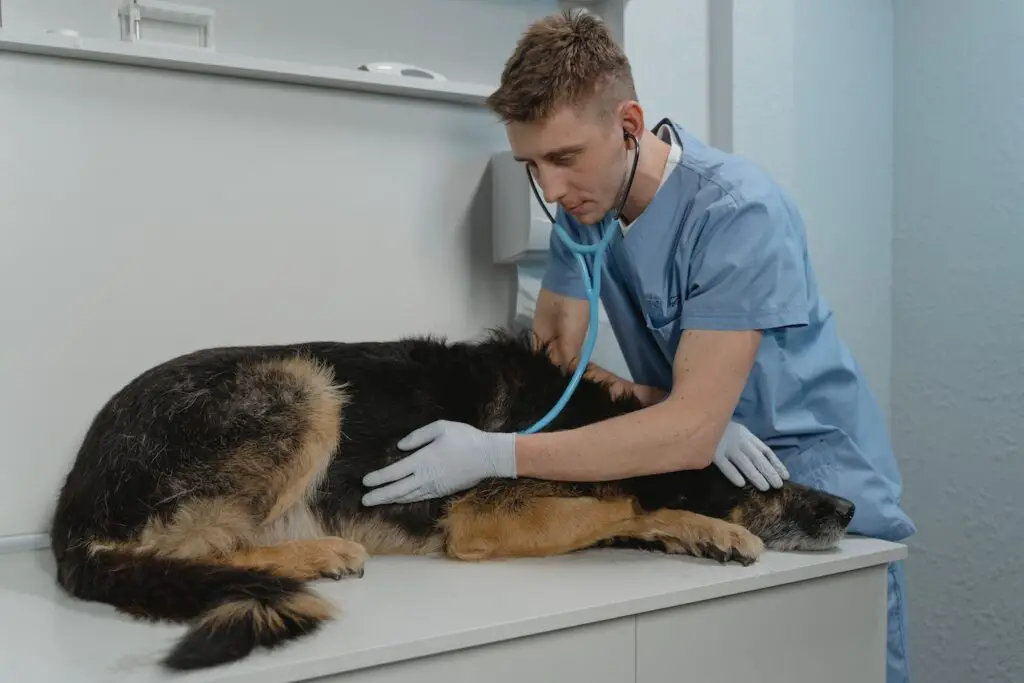
Regular deworming and flea control can help prevent parasite-related issues that may contribute to anal gland dysfunction.
6. Maintain Good Hygiene
Keeping the anal area clean and dry can help prevent infections and reduce discomfort. Consult your vet for suitable cleaning products and techniques.
FAQs (Frequently Asked Questions)
Q1: Can I express my dog’s anal glands at home?
It is strongly recommended to have a professional, such as a veterinarian or a trained groomer, perform anal gland expression. They have the necessary expertise to do it safely and effectively.
Q2: How often should a dog’s anal glands be expressed?
The frequency of anal gland expression varies from dog to dog. Some dogs may require it every few months, while others may need it less frequently or not at all. Your veterinarian can assess your dog’s specific needs and advise you accordingly.
Q3: Is fluid leakage from the anus always a cause for concern?
While it’s important to have any abnormal symptoms evaluated by a veterinarian, occasional fluid leakage from the anus may not always be a serious issue. However, if it persists, is accompanied by other symptoms, or if you have any concerns, it is best to consult a professional.
Conclusion
Leaking clear fluid from the anus can be distressing for both you and your female dog. By understanding the potential reasons behind this condition and seeking professional help, you can ensure the well-being of your furry companion.
Remember to consult a veterinarian for an accurate diagnosis and appropriate treatment plan tailored to your dog’s specific needs. With the right care, you can address the issue and help your dog live a happy and healthy life.


